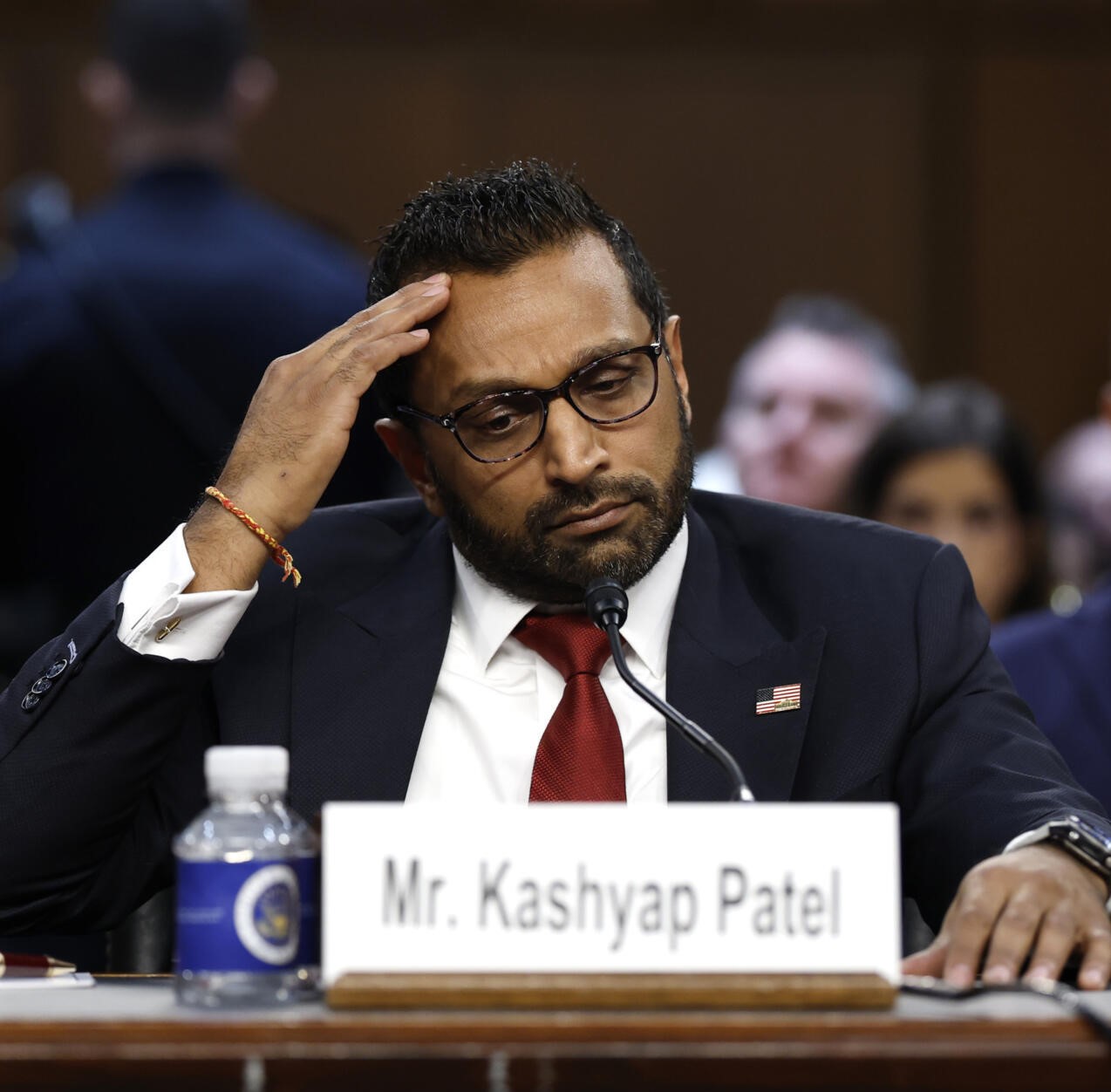The nomination of Kash Patel to lead the FBI has ignited fierce debates on Capitol Hill and across the nation. With a blend of strong endorsements from law enforcement groups and intense scrutiny from Democratic lawmakers, Patel’s confirmation has become a focal point in the ongoing struggle over how our nation’s law enforcement agencies are managed and politicized.
Patel, a former national security official and a key ally of former President Donald Trump, was nominated to lead the FBI amid a politically charged atmosphere. His background in intelligence and close ties to Trump have made him a controversial figure, with Republicans championing his nomination as a step toward restoring what they call fairness and transparency in federal law enforcement, while Democrats see his appointment as a direct threat to the agency’s independence.
One of the key points of contention is Patel’s previous role in the Trump administration, where he played a significant part in efforts to challenge the intelligence community’s assessment of Russian interference in the 2016 election. Democrats argue that Patel’s history of questioning intelligence findings and his involvement in efforts to discredit investigations into Trump’s alleged ties to Russia make him an unsuitable choice to lead the FBI. They fear that under his leadership, the bureau could become a politicized tool rather than an impartial law enforcement agency.
On the other hand, Republican lawmakers and conservative legal groups have praised Patel for his willingness to confront what they see as entrenched bias within federal agencies. Many view his nomination as an opportunity to reform the FBI, which they argue has become too politicized in recent years, particularly in its handling of high-profile investigations involving Trump and his associates. Patel’s supporters cite his experience in counterterrorism and intelligence as proof of his qualifications for the role, emphasizing his commitment to upholding the rule of law.
As the Senate Judiciary Committee prepared to vote on Patel’s nomination, tensions ran high. Democratic lawmakers, who have a narrow majority in the Senate, signaled their strong opposition to his confirmation and moved to delay the vote. They cited concerns over his past statements, potential conflicts of interest, and the need for a more thorough vetting process. The delay has only intensified the partisan battle, with Republicans accusing Democrats of obstructing the nomination for purely political reasons.
The postponement of the vote has sparked a wave of reactions from legal experts, former law enforcement officials, and political analysts. Some argue that delaying Patel’s confirmation is a prudent move, given the high stakes involved in leading the FBI at a time of deep political divisions and public distrust in government institutions. Others see it as an attempt to stall or ultimately derail his nomination altogether.
Meanwhile, Patel himself has remained defiant, dismissing criticisms as politically motivated attacks. In recent interviews, he has reiterated his commitment to restoring integrity and accountability to the FBI, arguing that his leadership would mark a new chapter for the agency. His supporters continue to push for a swift confirmation, urging moderate Democrats to break ranks and support his nomination.
The battle over Patel’s nomination underscores broader concerns about the future of federal law enforcement and the role of politics in shaping its leadership. Whether he ultimately secures confirmation remains uncertain, but one thing is clear: his nomination has become a flashpoint in the larger debate over trust, accountability, and the balance of power in Washington.
As the process moves forward, all eyes will be on the Senate, where Patel’s fate will be determined in a political climate that remains as divided as ever. Whether his nomination signals a shift in the FBI’s direction or is ultimately blocked by Democratic opposition, the controversy surrounding his candidacy will have lasting implications for the future of law enforcement in America.
